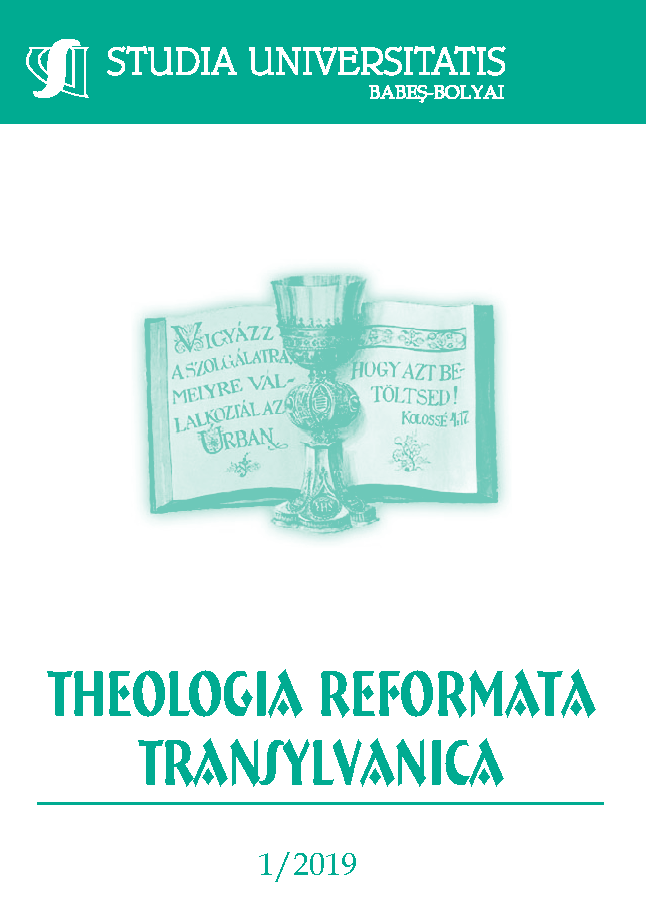A zene hatása az értelmi és az érzelmi intelligenciára
DOI:
https://doi.org/10.24193/subbtref.64.1.08Keywords:
music, emotional intelligence, creativity, imagination, Mozart effect, logical thinking.Abstract
The Effect of Music on Cognitive and Emotional Intelligence.
This study analyses the effect of music on aesthetic and emotional intelligence. Since creativity also means healing creation at the same time that implies digging deeper and transcendence as well, we would like to talk about the therapeutic effects of music with an intercommunication outlook. Some state that musicality is inborn and coded into our genes, which we call talent that can be further developed and transferred to the following generation. According to others, musicality and the ability to play and sing is not merely a matter of genetics but also the social and cultural background the individual grew up in is very important. We shall see that there are cultures in which music is the sole instrument with which the individual can adapt into the respective culture. Many deem that music is the “peak of human intellect and emotionality”, and that is why many studies were published in the second half of the 20th century about its effects on intellectual and emotional development. In what follows, we shall also talk about the debated Mozart effect, the biological basis of music and the stimulation of logical thinking. By music, the help, the counselor, the attender, the priest have a tool with which they can positively influence cognition, the expression of feelings, the development of creativity, whilst „the effects of the expansive transfer prevails through the intellectual, emotional and motivational changes”. But for all that, we must be familiar with the effects of music on intellectual and emotional intelligence.
References
ABBOTT, Alison: Mozart doesn't make you clever. http://www.nature.com/news/2007/070409/full/news070409-13.html (2016. december 7.).
BARNARD, Christiaan: 50 Wege zu einem gesunden Herz. ECON Ulstein List Verlag, München, 2000.
BOLYKI László: Milyen zenét szeret Isten? Álomgyár Kiadó, Budapest, 2005.
BORDÁS Veronika: Zene sejtjeinknek. http://www.ng.hu/Tudomany/2015/11/09/Zene-sejtjeinknek (2016. november 10.).
BOSMANS, Phil: Szívbalzsam. Szeged 1996, (Ford. Rónaszegi Éva), Agapé, Ferences Nyomda és Könyvkiadó Kft.
CAROLL, Robert Todd: Phänomenal: Der Mozart-Effekt. http://skepdic.com/German/mozarteffect.html (2016. július 13.)
CHABRIS, Christopher F.: Prelude or requiem for the ’Mozart effect’? In: Nature, 400. évf., 1999. 6747. szám, 826-827.
CLAYBOURNE, Anna: Bevezetés a gének és a DNS világába. (Ford. Sarka Edina) Tioti Kft, Budapest, 2005.
COCHRANE, Fiona: Music of the Brain. Documentary film, USA, 2009.
CZEIZEL Endre: A zeneszerzők genetikája. https://www.youtube.com/watch?v=gPhcIgZy-QE (2016. október 20.).
FALUS András: (szerk.): Zene és egészség. Kossuth Kiadó, Budapest, 2016.
FLEMING, Nic: Beethoven can help crops grow more quickly. http://www.telegraph.co.uk/news/earth/earthnews/3305158/Beethoven-can-help-crops-grow-more-quickly.html (2017. április 4.).
FOREMAN, Judy: Music's Contribution To Early Iq Becoming More Certain. http://articles.baltimoresun.com/1997-04-22/features/7901010213_1_baby-is-born-magic-of-music-specific-music (2017. február 4.).
GYARMATHY Éva: Kreativitás és a beilleszkedési zavarok. In: A kreativitás többszempontú vizsgálata, Debreceni Egyetem, Didakt Kiadó, Debrecen, 2011. http://real.mtak.hu/8835/1/Kreatcikk.pdf (2017. május 13.)
HALL, Edward T.: The Hidden Dimension. Anchor Books Editions. Doubleday, New York, 1966.
HAMLIN-WILSON, Gail (szerk.): Dictionary of Indian Tribes. Cisco, Newport Beach, 1993. 54-55.
HÉZSER Gábor: Miért? Rendszerszemlélet és lelkigondozói gyakorlat. Pásztorálpszichológiai tanulmányok. Kálvin János Kiadó, Budapest, 1996.
HOMÉROSZ: Odüsszeia. Kriterion Könyvkiadó, Bukarest, 1984.
JANURIK Márta: A zenei képességek szerepe az olvasás elsajátításában. In: Magyar Pedató-gia,108. évf., 2008. 4. szám, 289–317.
LANCZENDORFER Orsolya: Matematika a zenében vagy zene a matematikában. Diplomamunka, 2010 ELTE.
MALLORY, Caroline: The Effect of Music on Math and Science Standardized Test Scores. https://web.wpi.edu/Pubs/E-project/Available/E-project-022812-093901/unrestricted/IQPFinalDraft.pdf (2016. szeptember 15.).
MÁRAI Sándor: Ég és föld. Helikon Kiadó, Budapest, 2001.
MENUHIN, Yehudi and DAVIS, Curtis W.: The Music of Man. Ontario, Canada 1979, Methuen Publications 2330, Milland Avenue, Agincourt.
MONRO, Gregory and BENAZETH, Catherine: Monsieur de Funès. Documentary film, French, 2013.
MOZART, Wolfgang Amadeus: Sonate für zwei Klaviere D-Dur KV 448 (375a), 1781.
ORTUTAY Gyula: (főszerk.) Magyar Néprajzi Lexikon (1977-1982). Akadémiai Kiadó, Budapest. http://mek.niif.hu/02100/02115/html/1-8.html (2017. március 20.).
NEWMARCH, Rosa: Life and letters of Peter Illich Tschajkovsky. John Lane, London, 1906.
PLATÓN: Az állam. (Ford. Jánosy István) Gondolat Kiadó, Budapest, 1989.
POPPER Péter - RANSCHBURG Jenő - VEKERDY Tamás: Az erőszak sodrásában. Saxum Kiadó, Budapest, 2009.
PYERITZ, Reed: Orvosi genetika. In.: Lawrence M. TIERNEY Jr. – Stephen J. MCPHEE – Maxine A. PAPADAKIS – Steven A. SCHROEDER (szerk.): Korszerű orvosi diagnosztika és terápia. (Ford.: GERGELY Mária és MATOLTSYNÉ Horváth Ágnes) Melánia Kiadó, Budapest, 1993.
RAUSCHER, F.H., SHAW, G.L. and KY, K. N.: Music and spatial task performance. In: Nature, 365. évf., 1993. 6447. szám, 611.
RAUSCHER, F. H. - SHAW, G. L., LEVIN - L. J., DENNIS, W. R. and NEWCOMB, R. L.: Music training causes long-term enhancement of preschool children`s spatial-temporal reasoning. In: Neurogical Research, 19. évf., 1997. 1. szám, 2-8.
RINALDI, Andrea: Speak to me, melody, Music’s biological roots and its relationships with language under scrutiny. In: EMBO Reports, 10. évf., 2009. 12. szám, 1294-1297.
ROOT-BERNSTEIN, Michele and Robert: Einstein On Creative Thinking: Music and the Intuitive Art of Scientific Imagination. https://www.psychologytoday.com/blog/imagine/201003/einstein-creative-thinking-music-and-the-intuitive-art-scientific-imagination (2017. május 11.).
SEXTON, Timothy: African Drumming and Communication. An Ethnomusicological Analysis of Traditional African Drum Rhythms. http://www.ramstrum.com/music125/AfricanDrummingCommunication.html (2017. február 11.)
TOLLE, Eckhard: A most hatalma. (Ford.: Domján László és Jónai Hava) Agykontroll Kft., Budapest, 2001.
TORRENCE, E. Paul: The nature of creativity as manifest in its testing. In: Robert J. Stern-berg: The nature of creativity. Cambridge Univerity Press, USA, 1988.
TURI Gábor: Improvizáció, kreativitás, jazz. http://turigabor.hu/node/1425 (2016. december 20.).
WILSON-DICKSON, Andrew: The Story of Christian Music. A Lion Book, Oxford–Batavia–Sydney, 1992.
The Editors of Encyclopædia Britannica. https://www.britannica.com
Downloads
Published
How to Cite
Issue
Section
License
Copyright (c) 2019 Studia Universitatis Babeș-Bolyai Theologia Reformata Transylvanica

This work is licensed under a Creative Commons Attribution-NonCommercial-NoDerivatives 4.0 International License.



